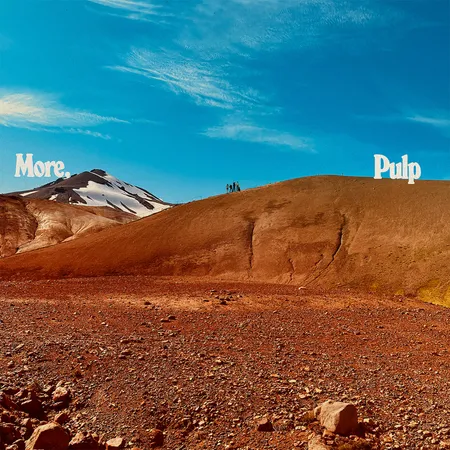
A band perennially out of time, Pulp have often found themselves waiting for the rest of the world to catch up to them. As such, while it may have appeared that they arrived alongside the new wave of Britpop bands circa 1995, Jarvis Cocker and his crew had already had a considerable career to that point, the band having initially formed in 1978 and the now legendary Different Class (with its Daily Mail baiting singles) being their fifth album to that point. From there, the band’s fortunes waxed and waned, with dark masterpiece This Is Hardcore earning them a second headline slot at Glastonbury (the band’s first, in 1995, is widely regarded as one of the festival’s best ever headline appearances), and 2001’s We Love Life appearing to draw a line under their existence (the band broke up in 2002).
It would be nearly a decade before the band would reform – a tentative, two-year stint that saw Pulp invigorated by the support they received, but unwilling to commit to new material. As a result, the band folded again – this time seemingly for good – only to return in 2022, armed with new material and a newfound sense of purpose. It’s been a long road but, some 24-years after We Love Life hit the racks, Pulp are back and, happily, with the absolutely brilliant More.
Pop the disc in the player and, in all honesty, it’s as if the band had never been away. The opening strains of Spike Island find Jarvis musing on the nature of receding fame as the band lay down a disco-funk soundtrack as vital as anything from their heyday. It’s followed by the breathy Tina, which sounds like the Divine Comedy going head to head with Levellers and platic-soul-era David Bowie, the result being one of those weirdly whimsical tracks, the likes of which only Pulp can successfully produce, Jarvis whispering in your ear one minute, throwing shapes on top of the bar the next.
The band adopt a glammier vibe on Grown Ups, which has touches of Bowie and Madness shot through its DNA. However, it’s the lyrics that really hit home, with Jarvis magically recapturing that lost sense of being young and dreaming of being old. It’s a trick that few could pull off without being cloyingly nostalgic, and yet Jarvis’ brilliant ability to observe the minutiae of life makes it feel like he grew up right alongside you – his ability to weave a narrative web nothing short of miraculous. It’s followed by the aptly titled Slow Jam, which pairs a funky bass riff with shuffling percussion and stabs of guitar, nodding to the darker tones of This Is Hardcore without fully plumbing the depths that that album explored. Then, just to make sure you’re paying attention, Pulp pull off another stylistic volte-face, offering up the neo-folk shuffle of Farmer’s Market which takes elements of Spiritualized and latter-day blur to inject a touch of tasteful psychedelia into the mix. With Jarvis’ spoken word passages and the shimmering sound of reverb drenched guitar lighting up the night sky, it’s a curiously lovely song.
Having lulled the listener into a dream world, the robo-funk of My Sex snaps us back to semi-reality, Jarvis’ yelps and groans evoking images of Prince karaoke night in a Sheffield ale bar as the creeping bass line and taut beat drive the track relentlessly forward. It’s followed by the gloriously brisk Got To Have Love, a euphoric pop-rock-music-hall blast filled with John Barry strings, possessed of a cracking chorus, and featuring the instant-classic lyric: “without love you’re just jerking off inside someone else”. With the album racing past, the eerie strings of Background Noise help to slow the pace, the band adopting a hitherto unnoticed Nick Cave influence as they incorporate astringent drones as a backing to Jarvis’ semi-spoken word verse. It’s followed by string-drenched ballad, Partial Eclipse – which plays out as a cheeky lyrical riposte to Total Eclipse Of The Heart.
With the album nearing its end, The Hymn Of The Betts North, which features a turn from Chilly Gonzales at the piano, evokes the grimy streets of empty, post-industrial towns, while Jarvis urges the inhabitants to fill their lives with love. A calming message in these febrile times, it’s a lovely piece of music that builds to one of the most thrillingly emotive conclusions the band have yet penned. It leaves A Sunset to bring the album to a close, Pulp signing off with a flourish as the piece moves from its gently picked intro to irresistible chorus and back again.
With More, Pulp have managed the impossible, successfully picking up where they left off while allowing enough innovation to reflect the years that have flowed under the bridge since they last set foot in the studio together. It’s wonderful to hear that the chemistry remains both present and unique, while Jarvis’ lyrics – always thoughtful – continue to document the human experience with a compassion that few of his peers have ever displayed. The result is an album that disarms and delights in equal measure, from the whimsical Tina to the glorious bombast of The Hymn Of The Betts North. Welcome back Pulp, you have been missed. 8.5/10



